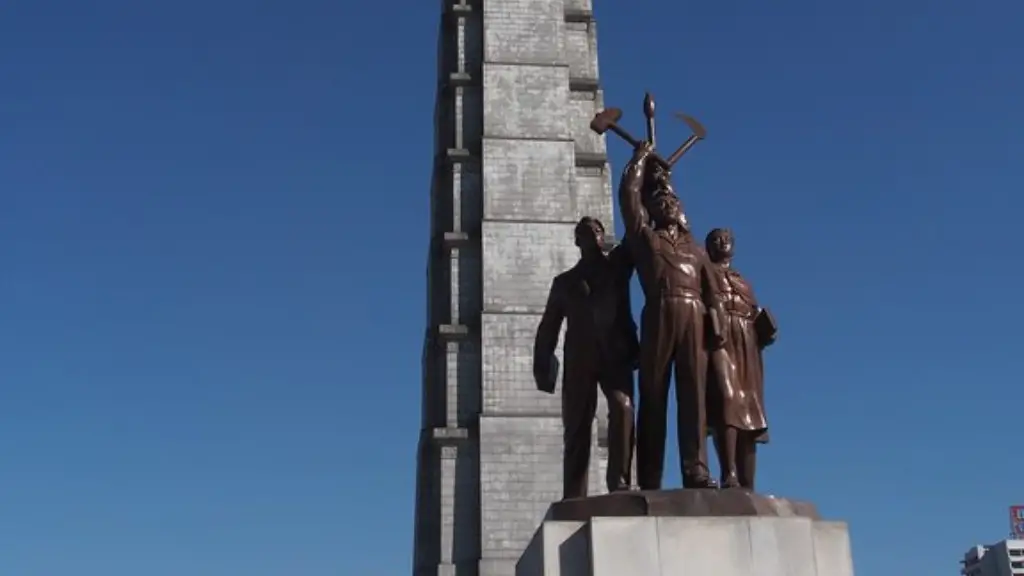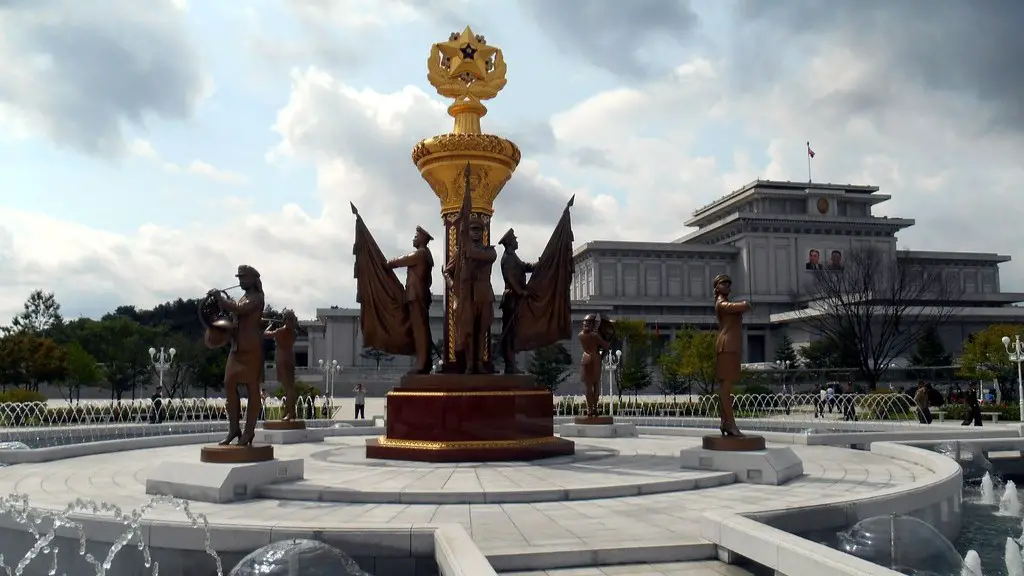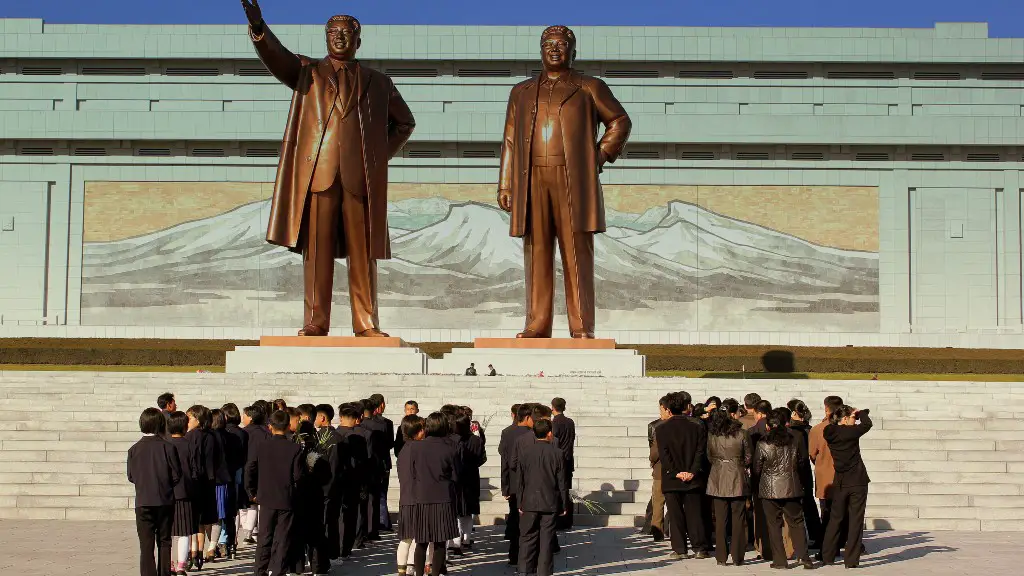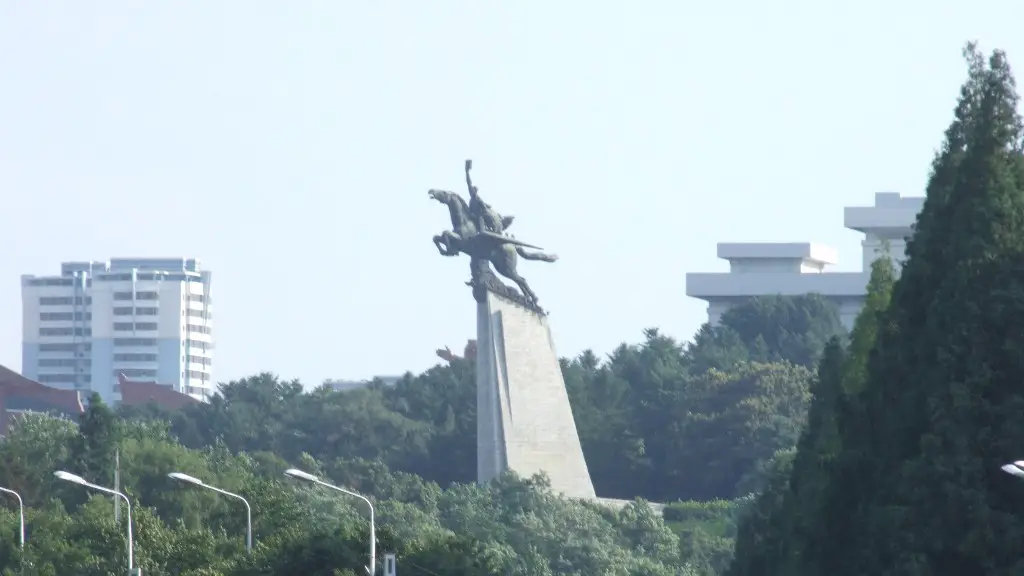Are We In Danger Of North Korea?
The relationship between North Korea and the wider international community has been a source of tension since the Korean War more than 60 years ago. Over the years, the secretive nation has steadily increased its nuclear weapons and ballistic missile capabilities. With the new leadership of Kim Jung-un, there are signs of increased aggression towards neighbors and the United States. This begs the question, are we in danger of North Korea?
Experts warn of the potential threats posed by North Korea. According to Gi-Wook Shin, director of the Walter H. Shorenstein Asia-Pacific Research Center at Stanford University, North Korea does not have a “rational thought process” and is willing to react with aggression at any perceived threat. This lack of predictability is what makes the threat from North Korea so dangerous. The unpredictable nature of the North Korean leadership could force the international community into war, despite the potential for catastrophic consequences.
North Korea has long been a destabilizing factor for the international community. Despite sanctions and resolutions imposed by the United Nations, North Korea’s nuclear and ballistic missile capabilities have only increased over the years. The nation now boasts an estimated stockpile of around 30 nuclear weapons and short- to medium-range missiles capable of delivering them. That number is expected to grow significantly in the coming years.
This reality has prompted international organizations to respond. In August 2017, the United Nations passed another round of sanctions in an attempt to stymie North Korea’s rapidly growing capability. So far, these sanctions have failed to dissuade North Korea and there are indications that its determination to grow its capabilities is only increasing. This has led to concerns that the international community will soon be forced to resort to more drastic measures in order to contain the burgeoning nuclear power.
Although there are signs of increased aggression from North Korea, the possibility of war appears to remain low. The nations involved have been wary of any potential conflict and have refrained from taking any action that would spark a larger confrontation. North Korea still appears to lack the capability to launch a sustained large-scale assault, and the international community is slow to act on concerns.
Despite this, the danger posed by North Korea remains real. Its unpredictable leadership and growing nuclear armaments mean that it is a potential source of destruction that could spark a global conflict. It is now up to the international community to come together and work to contain the growing nuclear threat.
North Korea Leader Insights
The recent leadership of Kim Jong-un has been a source of concern for many international organizations. Although the North Korean leader has expressed a willingness for peace and cooperation with its neighbors, his actions have done little to alleviate concerns about the nation’s intentions. North Korea’s recent actions, including a series of missile tests and nuclear warhead detonations, have raised fears that the nation is preparing for a potential conflict.
Experts believe that Kim Jong-un may not be acting rationally and is more likely to react to any perceived threat with aggressive action. His unpredictability and extreme rhetoric has only added to the fear and concern surrounding North Korea. It is this lack of predictability that makes the threat posed by the nation so dangerous.
It is unclear whether Kim Jong-un is truly seeking to expand the power of North Korea or merely trying to maintain a sense of stability. Whatever his motivations may be, the international community must remain vigilant and prepared to respond in the event of any aggressive action.
International Response
The traditional approach to containing the threat posed by North Korea has been a series of economic and diplomatic sanctions. The United Nations Security Council has passed a series of resolutions aiming to limit North Korea’s ability to fund its nuclear and ballistic missile programs. Despite these measures, the nation has continued to develop its capabilities, prompting some to consider more drastic action.
The international community has so far been hesitant to act militarily against North Korea. This reluctance is largely due to the possibility of a devastating military conflict, which could potentially lead to a nuclear war. Despite these concerns, there is an increasing sense that the international community will soon be forced to respond in a more direct way to contain the rising threat.
For now, the world can only hope that diplomatic solutions will be effective in preventing a potential conflict. It is clear that North Korea is a dangerous and unpredictable nation. The international community must remain vigilant and prepared to act in the event of a threat.
Potential Consequences
Although the likelihood of a military conflict remains low, the potential consequences of a conflict between North Korea and other nations is a source of great concern.
A war between North Korea and its neighbors or the United States could have devastating consequences for the region and the world. North Korea’s increasing stockpile of nuclear weapons and ballistic missiles could be used to devastating effect. The potential loss of life and destruction of infrastructure would be enormous.
Further, the potential for a conflict to escalate into a nuclear war could have catastrophic consequences for the planet. The devastation from a nuclear conflict could render large swaths of the world uninhabitable for years to come.
This reality has led to a renewed sense of urgency to find a diplomatic solution to the crisis. The international community must continue to search for a lasting solution to the crisis and remain vigilant to any changes in the situation.
Economic Sanctions
The international community has imposed a series of economic and diplomatic sanctions on North Korea in order to pressure the nation into abandoning its nuclear and ballistic missile programs.
The United Nations has passed a series of resolutions, backed by economic penalties, in an attempt to curtail the nation’s ability to fund its weapons programs.
So far, these sanctions have failed to have a lasting impact on the country’s determination to grow its nuclear capabilities.
Most analysts believe that the current sanctions are not severe enough to have an effect on the nation’s behavior.
As a result, the international community is considering more drastic measures. Some have proposed a naval blockade of North Korea in an attempt to limit the nation’s ability to import materials and technologies needed for its weapons programs.
However, such a move could spark a military response from North Korea, leading to an escalation of the situation.
United States Involvement
The United States has long been involved in the situation in North Korea. With its considerable military might, the United States is seen as a key player in the crisis.
President Trump has taken a confrontational approach to North Korea, warning the nation of “fire and fury” if it continues its provocations.
This has caused alarm amongst international organizations and North Korea’s neighbors, who worry that the hostile language could lead to a larger conflict.
The United States has remained adamant that it will not tolerate North Korea’s nuclear and ballistic missile programs.
However, it has been reluctant to act militarily, citing the potential for catastrophic consequences.
For now, the United States seems content to continue imposing economic sanctions on the nation in an attempt to stymie its weapons capabilities.




